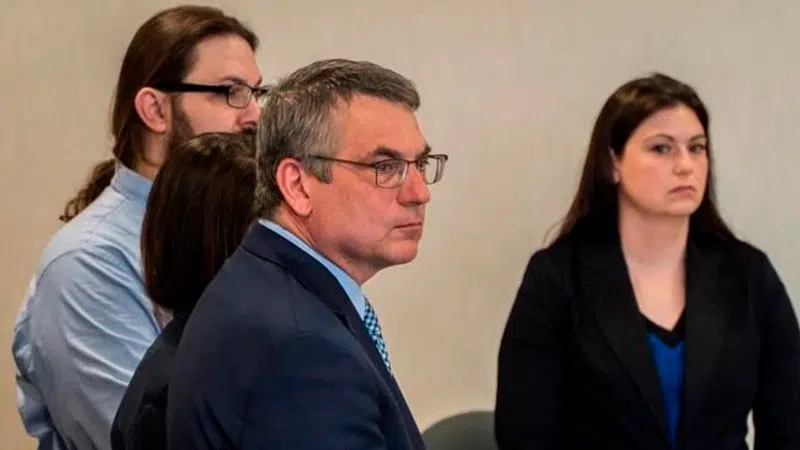
Jury: Vermont man guilty of murder in wrong-way crash
BURLINGTON, Vt. — A Vermont jury on Wednesday found a wrong-way driver who claimed he was on a secret mission guilty of murder in the deaths of five teenagers killed on an interstate highway.
The jury’s verdict against Steven Bourgoin came on the second day of deliberations following a two-week trial. Bourgoin, 38, had pleaded not guilty to five counts of second-degree murder and other charges. He faces 20-years to life in prison on each count.
Defence attorneys acknowledged that Bourgoin caused the October 2016 crash but said he was insane at the time. Jurors rejected that claim.

